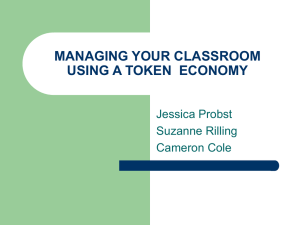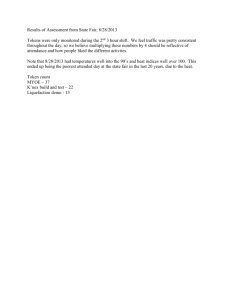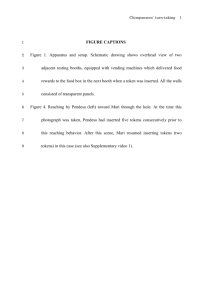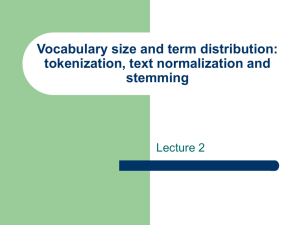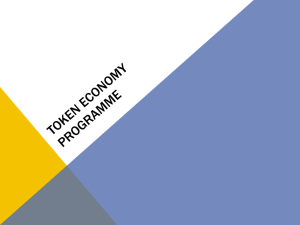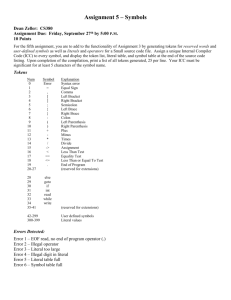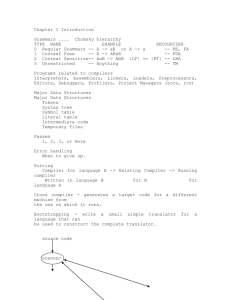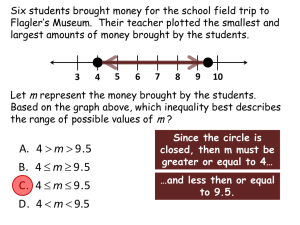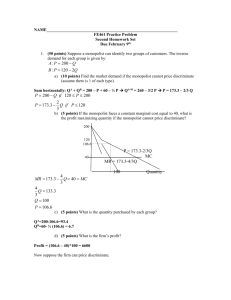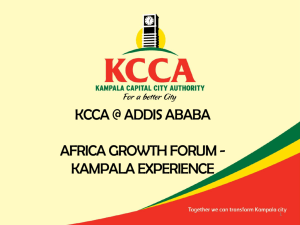BELLER CONSULT GMBH, 79110 Freiburg, Linnéstraße 5, Tel
advertisement
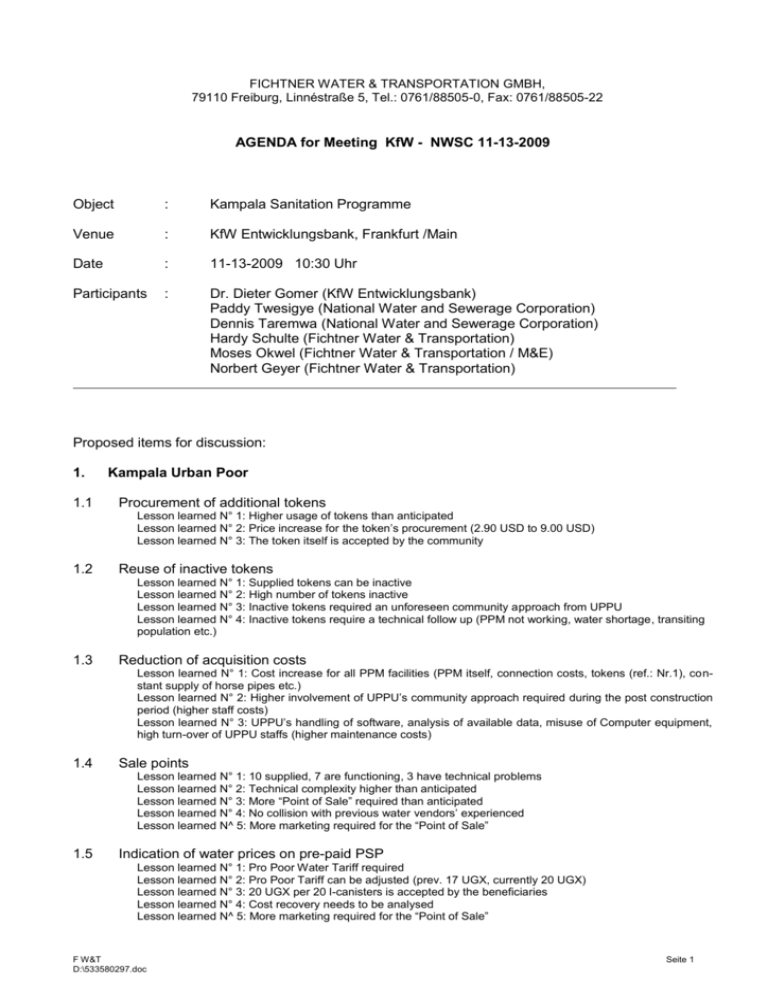
FICHTNER WATER & TRANSPORTATION GMBH, 79110 Freiburg, Linnéstraße 5, Tel.: 0761/88505-0, Fax: 0761/88505-22 AGENDA for Meeting KfW - NWSC 11-13-2009 Object : Kampala Sanitation Programme Venue : KfW Entwicklungsbank, Frankfurt /Main Date : 11-13-2009 10:30 Uhr Participants : Dr. Dieter Gomer (KfW Entwicklungsbank) Paddy Twesigye (National Water and Sewerage Corporation) Dennis Taremwa (National Water and Sewerage Corporation) Hardy Schulte (Fichtner Water & Transportation) Moses Okwel (Fichtner Water & Transportation / M&E) Norbert Geyer (Fichtner Water & Transportation) Proposed items for discussion: 1. 1.1 Kampala Urban Poor Procurement of additional tokens Lesson learned N° 1: Higher usage of tokens than anticipated Lesson learned N° 2: Price increase for the token’s procurement (2.90 USD to 9.00 USD) Lesson learned N° 3: The token itself is accepted by the community 1.2 Reuse of inactive tokens Lesson learned N° 1: Supplied tokens can be inactive Lesson learned N° 2: High number of tokens inactive Lesson learned N° 3: Inactive tokens required an unforeseen community approach from UPPU Lesson learned N° 4: Inactive tokens require a technical follow up (PPM not working, water shortage, transiting population etc.) 1.3 Reduction of acquisition costs Lesson learned N° 1: Cost increase for all PPM facilities (PPM itself, connection costs, tokens (ref.: Nr.1), constant supply of horse pipes etc.) Lesson learned N° 2: Higher involvement of UPPU’s community approach required during the post construction period (higher staff costs) Lesson learned N° 3: UPPU’s handling of software, analysis of available data, misuse of Computer equipment, high turn-over of UPPU staffs (higher maintenance costs) 1.4 Sale points Lesson learned N° 1: 10 supplied, 7 are functioning, 3 have technical problems Lesson learned N° 2: Technical complexity higher than anticipated Lesson learned N° 3: More “Point of Sale” required than anticipated Lesson learned N° 4: No collision with previous water vendors’ experienced Lesson learned N^ 5: More marketing required for the “Point of Sale” 1.5 Indication of water prices on pre-paid PSP Lesson learned N° 1: Pro Poor Water Tariff required Lesson learned N° 2: Pro Poor Tariff can be adjusted (prev. 17 UGX, currently 20 UGX) Lesson learned N° 3: 20 UGX per 20 l-canisters is accepted by the beneficiaries Lesson learned N° 4: Cost recovery needs to be analysed Lesson learned N^ 5: More marketing required for the “Point of Sale” F W&T D:\533580297.doc Seite 1 1.6 Replacement of unused pre-paid PSP Lesson learned N° 1: Water supply in the areas not as constant as assumed, hence unused PPMs Lesson learned N° 2: Re-Location as activity has to be considered Lesson learned N° 3: Community is still not fully familiar with the system Lesson learned N° 4: Density of PPMs on certain locations is too high Lesson learned N° 5: Funds have to be made available to relocated PPMs 1.7 Increase of activities in social marketing Lesson learned N° 1: NWSC as technical service supplier is the first time involved in social marketing Lesson learned N° 2: Social marketing could be sub-contracted to professional NGOs Lesson learned N° 3: IEC needs to be implemented more efficiently and effectively Lesson learned N° 4: The activity schedule for social marketing needs to be more consistent with the physical implementation Lesson learned N° 5: Social marketing staffs of UPPU needs to be involved consistently to develop a deeper and better relationship to the beneficiary groups 1.8 Improvement of data evaluation Lesson learned N° 1: The data evaluation and its analysis needs better motivated UPPU staff Lesson learned N° 2: The understanding of the importance of data evaluation is not yet fully understood by UPPU / Kampala Water staffs Lesson learned N° 3: Results of the limited data evaluation currently done is not analysed for future projects Lesson learned N° 4: Data analysis should be done at Kampala Water Branch and not at UPPU office Lesson learned N^ 5: Data evaluation should become a full part of UPPU’s monthly performance reports 1.9 Simplification of user registration Lesson learned N° 1: The supply of tokens needs to be re-evaluated (registered supply or free supply) Lesson learned N° 2: Analysis of current registration has to be done Lesson learned N° 3: A comparison of “token supply” and “telephone card supply” should be done Lesson learned N° 4: Some groups are scared to be registered Lesson learned N° 5: Registered data has to be updated regularly Lesson learned N° 6: Registration does not apply for transiting population 1.10 Institutional Aspects Lesson learned N° 1: UPPU should have given more time to develop a Branch Lesson learned N° 2: No clear following of the Terms of Reference for all UPPU members Lesson learned N° 3: No clear structural set up between UPP Unit und UPP Branch Lesson learned N° 4: Limited acceptance of UPPU within Kampala Water Branch Lesson learned N° 5: No definition of activities between UPP Branch and other branches of Kampala Water Lesson learned N° 6: Better coordination between projects located in other Urban Poor Parishes ________________________________________________________________________ F W&T D:\533580297.doc Seite 2

